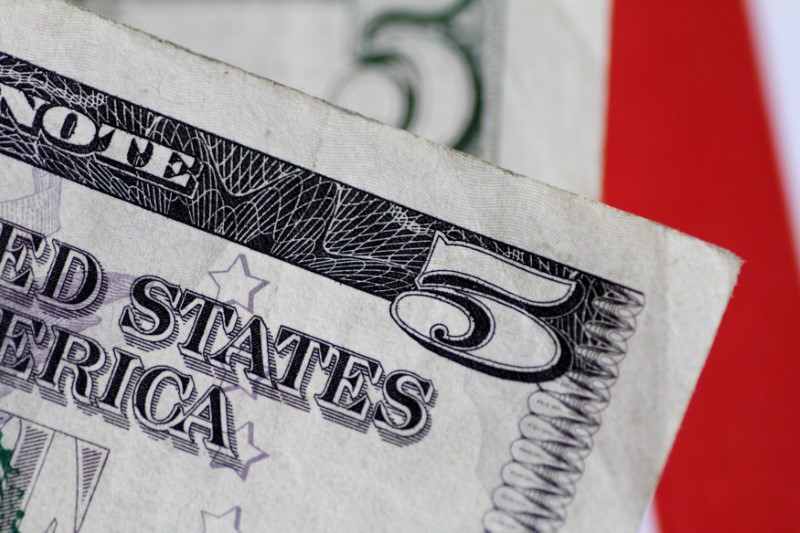Investing.com - The dollar pushed higher against a currency basket on Wednesday after hitting a one-month low overnight, but gains were held in check amid uncertainty over the U.S. trade situation.
The U.S. dollar index, which measures the greenback’s strength against a basket of six major currencies, was up 0.13% to 94.75 by 03:10 AM ET (07:10 GMT), pulling away from an overnight low of 94.34, which was the weakest level since August 1.
Market sentiment has been boosted by the more positive outlook on trade after the U.S. reached an agreement with Mexico on a trade deal aimed at overhauling the North American Free Trade Agreement.
There are hopes that Canada, the other NAFTA trade partner, will join the new deal in the coming days.
But the new trade deal did little to indicate how a trade spat between the U.S. and China may develop after talks last week ended with little progress and both countries slapped fresh reciprocal tariffs on imports.
The dollar found support after a report on Tuesday showed that U.S. consumer confidence unexpectedly rose in August, reaching its highest level since October 2000.
Investors were looking ahead to revised figures on U.S. second quarter growth later in the day, which were expected to confirm that the economic expansion remained strong.
The dollar was little changed against the yen, with USD/JPY trading at 111.25.
The euro retreated from one-month highs against the dollar, with EUR/USD sliding 0.23% to 1.1667.
The single currency edged lower against the pound, with EUR/GBP at 0.9080 after rising to an almost one-year high of 0.9097 on Tuesday amid fears over the prospect of a no-deal Brexit.
British Prime Minister Theresa May claimed Tuesday that a no-deal Brexit “wouldn’t be the end of the world” as she sought to downplay a warning from Chancellor Philip Hammond last week about the damage it could do to the British economy.
Sterling was a touch lower against the firmer dollar, with GBP/USD slipping 0.11% to 1.2858.
Meanwhile, the Turkish lira fell further against the dollar on Wednesday, pressured lower by continued uncertainty over the diplomatic spat between Washington and Ankara.
Deteriorating relations between the U.S. and Ankara and worries about Turkish President Tayyip Erdogan's increasing control over monetary policy and the economy have seen the lira tumble almost 40% this year and hit record lows mid-month.
